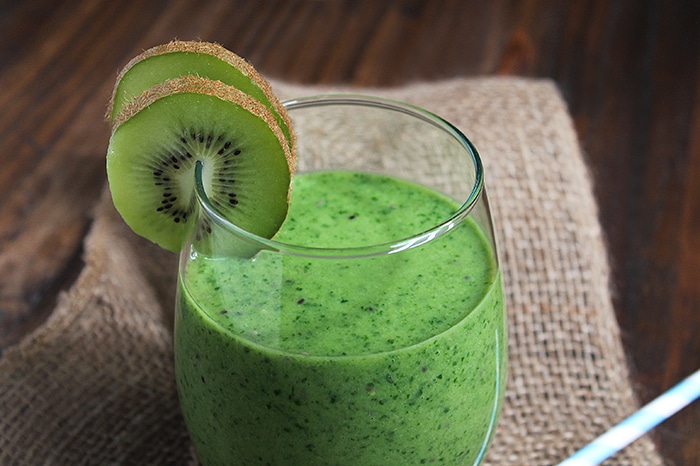
6 Vitamins & Supplements for Migraine Relief and Prevention
More than 300 million people worldwide suffer from migraines. It’s estimated that nearly 20 million people experience a migraine every day. But, the reason for that migraine could be in your diet. A new preliminary study by Cincinnati Children’s Hospital Medical Center found that a good amount of children, teens, and young adults who experienced migraines had vitamin D, riboflavin, and coenzyme Q10 deficiencies. Coenzyme Q10 is a natural antioxidant that is similar to a vitamin and can be found in every cell. It helps produce energy to maintain cell growth.
Suzanne Hagler, MD was the lead author of the study. She presented the finding at the Annual Scientific Meeting of the American Headache Society in June 2016. Hagler and her colleagues studied blood samples of 7,420 patients to check for nutrients and vitamins that have been linked to migraines in the past including, vitamin D, riboflavin, coenzyme Q10, and folate.
Table of Contents
Coenzyme Q10
Of the nutrients and vitamins screened, the researchers found that many of the participants had low levels of coenzyme Q10, with 51 percent reported below-average levels. Thirty-one percent of patients did not have enough vitamin D, and 16 percent of participants had less than an average of riboflavin in their systems. Looking deeper, Hagler and colleagues found that women were more likely to have coenzyme Q10 deficiencies, while men were more likely to have vitamin D deficiencies. Many patients with chronic migraines had both coenzyme Q10 and riboflavin deficiencies.
This study is very preliminary, though, and it hasn’t even been published in a peer-reviewed journal. But, it adds a little bit more research and answers to a number of other, smaller studies that looked at the same thing.
In 2012, a study in The Journal of Head and Face Pain examined a number of other studies and found both riboflavin and coenzyme Q10 supplements showed positive benefits in patients with metabolic encephalomyopathies, a generic term for a disease that alters brain function. The same treatment was used for migraines and lead the researchers to believe that a migraine could be a mitochondrial disorder.
Vitamin D
Another study by the Journal of Research in Medical Studies in 2015 found that vitamin D supplements may be helpful in lowering the number of headaches and migraines patients have. The researchers examined 65 patients with migraines between the ages of 10-61. The patients were given a high dosage of vitamin D for 10 weeks straight and then were asked to rate the severity, duration, frequency, and more of headaches and migraines they experienced. With the positive results, the researchers concluded that more clinical trials need to be done with larger sample size.3
But, not all research on this topic has been positive. In 2014, BioMed Research International found that there was no evidence for a link between vitamin d deficiency and migraines. The researchers pooled together seven studies and found that a few of the studies with positive results were very small and were not placebo-controlled. The study concluded that there was not enough reliable scientific support to link vitamin D deficiency and migraines.
A 2015 study in the International Journal for Vitamin and Nutrition Research reviewed 11 articles on vitamin deficiency and migraines. The researchers concluded that there was enough evidence to say that riboflavin supplements were helpful in preventing migraine symptoms in adults, but they also did not find enough evidence to support vitamin B2 in both adults and children.5
In December 2015, a study in Annals of Neurology showed positive results in using vitamin D to prevent headaches and migraines. The researchers performed a random, double-blind placebo trial on 57 adults with migraines. Over the 12-week study, participants received both simvastatin and vitamin D3. The patients that had both simvastatin and vitamin D3 experienced fewer migraines than the control group.
Even though many studies have shown positive results in terms of the connection between vitamin deficiency and migraines, more research needs to be done. The sample groups have been relatively small, and bigger studies with more participants need to be conducted to show the full extent of the connection.
But if your patients have tried a variety of treatments with no results, this may be a viable option with few risks.
Taking vitamin supplements could help reduce migraines. Coenzyme 10 can be found in meat, nuts, fish, and also some vegetables and fruits. The body makes vitamin D when exposed to the sun. Other remedies to help get rid of migraines include finding a calming environment or even drinking a caffeinated beverage.
The Mayo Clinic says that a small amount of caffeine can help get rid of early migraine pain and also enhance the effects of aspirin.7 Also, eating healthy and avoiding foods that trigger migraines can help.
Magnesium
A 12-week, the double-blind study followed 81 people with recurring migraines. Half received 600 mg of magnesium daily and the other half a placebo. The frequency of migraines for those taking magnesium was reduced by 41.6 percent compared to 15.8 percent in the placebo group.
Magnesium is a mineral involved in nerve cell function. Magnesium occurs naturally in nuts, whole grains and dark green vegetables such as spinach.
Vitamin B2 (Riboflavin)
Multiple studies have shown favorable results for high levels of vitamin B2 reducing the number of migraine occurrences.
One example is a three-month, randomized trial of 55 people. Some were given 400 mg of B2 as compared to the placebo group. Fifty-nine percent of the B2 group saw a significant improvement as opposed to only 15 percent of the placebo group. Markedly, the majority of those given B2 experienced more than a 50 percent decrease in the number of migraine attacks.
Vitamin B2 is a vitamin that plays an important role in metabolism and boosting energy production inside nerve cells. B2 is naturally present in many vegetables and leafy greens, nuts, wild rice, and organ meats such as the liver.
Melatonin
Study participants took 3 mg of quick-release melatonin 30 minutes before bedtime for three months. In this dosage, more than 75 percent experienced a decrease in migraines.
The pineal gland creates melatonin as a natural hormone to regulate sleep. In addition to this study, some research suggests melatonin production might be different in people with migraines.
Butterbur
Butterbur, the technical name being Petasites hybridus, is a perennial shrub and herbal therapy used throughout history to prevent migraines. It’s been deemed both an effective and well-tolerated alternative therapy, with the dominant side effect being stomach upset with belching.
That being said, the use of butterbur is now surrounded by controversy due to safety concerns. The Petadolex formulation and other butterbur formulations have been linked to 40 cases of liver toxicity, two people requiring liver transplants.
The CHS guidelines still cite a strong recommendation for using Butterbur at a dose of 75mg twice daily. But Canada does caution consumers to only use certain commercially available license butterbur products—these products that have been tested and found not to contain the liver-toxic pyrrolizidine alkaloids.
Based on 2012 guidelines from the AHS and AAN, Petasites hybridus or butterbur is listed as a Level A drug (“effective”) for preventing migraines. They have not revised their guidelines in light of these new findings regarding liver toxicity. Many doctors are holding off on recommending Butterbur until societies like the American Headache Society make new recommendations.
Butterbur, the technical name being Petasites hybridus, is a perennial shrub and herbal therapy used throughout history to prevent migraines. It’s been deemed both an effective and well-tolerated alternative therapy, with the dominant side effect being stomach upset with belching.
That being said, the use of butterbur is now surrounded in controversy due to safety concerns. The Petadolex formulation and other butterbur formulations have been linked to 40 cases of liver toxicity, two people requiring liver transplants.
The CHS guidelines still cite a strong recommendation for using Butterbur at a dose of 75mg twice daily. But Canada does caution consumers to only use certain commercially available license butterbur products—these products that have been tested and found not to contain the liver-toxic pyrrolizidine alkaloids.
Based on 2012 guidelines from the AHS and AAN, Petasites hybridus or butterbur is listed as a Level A drug (“effective”) for preventing migraines. They have not revised their guidelines in light of these new findings regarding liver toxicity. Many doctors are holding off on recommending Butterbur until societies like the American Headache Society make new recommendations.
References
References
1 Cincinnati Children’s Hospital Medical Center. Many with migraines have vitamin deficiencies, says study. Published June 10, 2016. Accessed July 2016.
2 Markley HG. CoEnzyme Q10 and riboflavin: the mitochondrial connection. Published October 2015. Accessed July 2016.
3 Mottaghi T. Askari G. Khorvash F. Maracy MR. Effect of Vitamin D supplementation on symptoms and C-reactive protein in migraine patients. Published May 2015. Accessed July 2016.
4 Lippi G. Cervellin G. Mattiuzzi C. No evidence for an association of Vitamin D deficiency and migraine: A systematic review of the literature. Published May 8, 2014. Accessed July 2016.
5 Namazi N. Heshmati J. Tarighat-Esfanjani A. Supplementation with Riboflavin (Vitamin B2) for Migraine Prophylaxis in Adults and Children: A review. Published 2015. Accessed July 2016.
6 Buettner C. Nir RR. Bertisch SM. Bernstein C. Schain A. Mittleman MA. Burstein R3. Simvastatin and vitamin D for migraine prevention: A randomized, controlled trial. Published December 2015. Accessed July 2016.
7 Mayo Clinic Staff. Migraines: Simple steps to head off the pain. Published July 8, 2015. Accessed July 2016.









